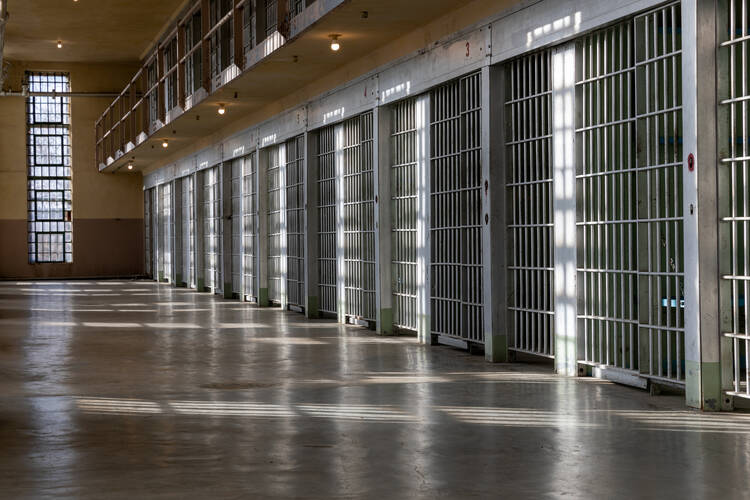A Reflection for Thursday of the Nineteenth Week in Ordinary Time
Then in anger his master handed him over to the torturers
until he should pay back the whole debt.
So will my heavenly Father do to you,
unless each of you forgives his brother from his heart." (Mt 18:21–19:1)
I started volunteering at the Bedford Hills Correctional Facility (New York State’s only maximum security prison for women) in 2002. My younger son had just set off to kindergarten, and I had some free time and a curiosity about the criminal legal system in this country.
What started as a simple assignment—helping the women reconnect with the children who had been left behind—grew into a true vocation for me. I met women whose life experiences had been drastically different from mine in every single way; well before they had committed the crimes for which they were incarcerated, they had experienced hardships and suffering and poverty and rejection and isolation in ways I could not even imagine—and honestly, the only thing that separated them from me was the random circumstances of our birth. I was born to white, educated parents who had the resources, health and inclination to care for me. I am no more worthy than anyone I have ever met inside a prison, just so much luckier.
If that spirit of loving forgiveness can be felt in a maximum security prison, there is no reason why it cannot exist in our own homes and hearts despite if our sins are great or small.
While volunteering, what also struck me profoundly was the extraordinary penance so many of the women were doing for the choices and actions that had led to their incarceration. Like Jesus instructs Peter in today’s Gospel, these women were working towards being forgiven over and over again—from the victims of their crimes, from their families (especially their children), from their friends, from society, from themselves and from a God they loved and praised, despite having countless reasons to doubt. Indeed, I never felt the Holy Spirit more powerfully than at an Ash Wednesday service inside the prison when I stood among people who had done the unthinkable and were trying and committing to doing better. It was a privilege to witness their accountability and support their efforts to do right, and it was also a humbling and a potent reminder that we are all sinners with an abiding obligation to seek and provide forgiveness to each other.
If that spirit of loving forgiveness can be felt in a maximum security prison, there is no reason why it cannot exist in our own homes and hearts despite if our sins are great or small. We can all learn from the incarcerated women who were working towards forgiveness over and over again.
There is a non-profit organization called the Frederick Douglass Project for Justice that provides opportunities in person and virtually to meet with incarcerated people and learn about their life experiences. Visit www.douglassproject.org for more information or to join a visit session.








